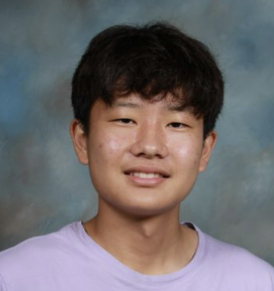
The courtroom fell silent yesterday as 71-year-old Joseph Czuba was sentenced to 53 years for taking the life of 6-year-old Wadea Al-Fayoume, a Palestinian-American boy who loved drawing rainbows and playing soccer with his friends. The October 2023 attack that claimed Wadea’s life and left his mother, Hanaan Shahin, severely injured has left a lasting mark on their suburban Illinois community and the nation.

Wadea’s teacher, Sarah Mitchell, remembers him as “the child who always shared his crayons and made sure no one sat alone at lunch.” His kindergarten drawings still decorate the walls of his classroom, where classmates continue to leave small toys at his empty desk. “He had this incredible ability to make everyone smile,” Mitchell shared, her voice breaking. “That’s how we choose to remember him.”
The Day of the Attack
The tragedy unfolded on what began as an ordinary Tuesday morning. Hanaan, a devoted mother who worked at a local daycare, was making breakfast when Czuba, their landlord, burst into their home. Neighbors reported hearing screams, followed by an eerie silence. It was Hanaan’s 911 call that would later haunt investigators: “Please help… he’s killing us… my baby…”
First responders found Wadea clinging to life, his small body bearing 26 stab wounds. Emergency physician Dr. Lisa Nguyen, who fought to save him, recalls: “We see terrible things in the ER, but this… this was different. The entire staff wept that day.” Hanaan survived multiple critical injuries after seven hours of surgery, only to awaken to the news that her only child was gone.
A Community in Mourning
In the months since, the Al-Fayoume’s modest apartment has become a shrine of sorts. Stuffed animals, candles, and handwritten notes from strangers cover the porch. Local baker Jamal Hassan, who never met the family, has kept their doorstep stocked with fresh pita bread weekly. “It’s what we do,” he says simply. “When a mother loses her child, she shouldn’t have to worry about bread.”
The sentencing brought little comfort to those who loved Wadea. His father, Oday Al-Fayoume, who was at work during the attack, now spends evenings at a local park watching children play. “I go where the laughter is,” he admits. “Some days I can almost hear Wadea’s voice in the crowd.”
 From Grief to Action
From Grief to Action
At the Islamic Center of Plainfield, Imam Omar Suleiman has watched his congregation transform grief into action. “After Wadea’s death, we had hundreds of new volunteers for our neighborhood watch and youth programs,” he notes. The center now hosts weekly art therapy sessions for children struggling with fear after the attack.
Hanaan, though still recovering physically, has become an unexpected advocate for peace. She recently partnered with a Jewish community leader to create “Wadea’s Garden,” an interfaith playground being built where children of all backgrounds can play together. “Hate took my son,” she said at the groundbreaking, “but love will build something beautiful in his name.”
A Legacy of Love
As Czuba begins his sentence, the community continues healing in small, profound ways. Every Friday at sunset, neighbors gather outside the Al-Fayoume’s former home to release blue balloons — Wadea’s favorite color. And at the local elementary school, a new tradition has taken root: each morning, children place a single crayon in a jar beneath Wadea’s photo, creating rainbows of hope where darkness once prevailed.
<Student Reporter Andrew Choi > Canyon Crest Academy andrewchoi0724@gmail.com
Editor’s Note:
Clear and factual,and could better highlight the hate crime context.







